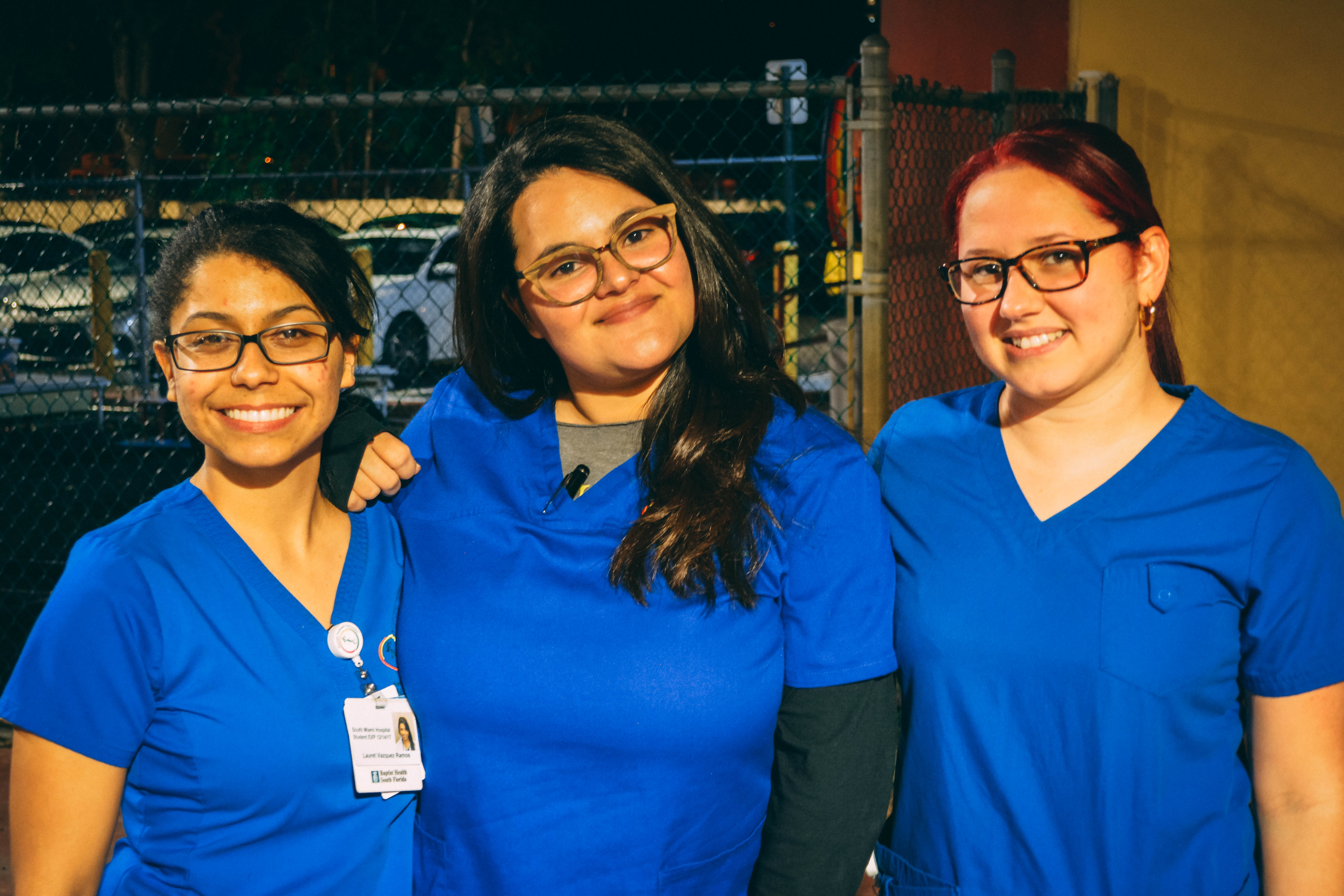 If you aspire to start a career in any profession in the healthcare industry, a quality education is a good place to start! Florida National University (FNU), a regionally accredited educational institution based in the South Florida area, offers both an associates and bachelor’s degree in Respiratory Therapy (RT). Our RT degree programs aim to help students accomplish the following:
If you aspire to start a career in any profession in the healthcare industry, a quality education is a good place to start! Florida National University (FNU), a regionally accredited educational institution based in the South Florida area, offers both an associates and bachelor’s degree in Respiratory Therapy (RT). Our RT degree programs aim to help students accomplish the following:
- We provide Certified Respiratory Therapists who are currently working in the field as well as graduates from the Commission of Accreditation for Respiratory Care (CoARC) to earn an Associate of Science in Respiratory Therapy.
- Once students have completed the associate’s degree in Respiratory Therapy, they will be prepared to take the national Board for Respiratory Care Exams. Upon passing these exams, they will achieve the prestigious national title of a Registered Respiratory Therapist (RRT).
- RRT graduates of the Associate of Science in Respiratory Therapy from a CoARC have the opportunity to further their career as a Respiratory Therapist by enrolling in FNU’s Bachelor of Science in Respiratory Therapy. This CRT to RRT Bridge Program requires special admission policies. To learn more about this, refer to our Baccalaureate of Science in Respiratory Therapy Student Handbook.
Benefits to Pursuing a Bachelor’s Degree in Respiratory Therapy
In order to become one of the top Respiratory Therapist in the field, FNU advises you to aim at achieving the highest level of education possible. For aspiring Respiratory Therapist professionals, it is highly recommended to pursue the bachelor’s degree because the American Association for Respiratory Care and the National Board of Respiratory Care will soon establish this as the minimum requirements.
If you’re interested in starting a career in Respiratory Therapy here is what you need to know:
The Criteria and Admission Requirements
-
This program must be completed on a full-time basis.
-
Present a completed FNU Admission Application
-
Provide an official high school transcript and/or transcript from another accredited university if applicable
-
Score 60 or above in two diagnostic exams: University Success and Test of Essential Academic Skills (TEAS)
-
The following Natural Sciences courses need to be completed with a minimum 2.50 GPA or better: MAC 1105, HSC 1531, CHM 1105, CHM 1105L, MCB 2000C, BSC 1085C, and BSC 1086C, and RET 1001
-
Two letters of recommendation
-
Interview with the Director of Respiratory Therapy Program and the Director of Clinical Education
Go Through a Background Check
-
It is mandatory for any student who aspires to practice in clinical facilities to undergo a background screening along with a drug test.
-
Complete a physical examination and provide an official immunization record.
Acquire Certain Certifications from the American Heart Association (AHA):
-
OSHA – Occupational Safety and Health Administration
-
HIV – Human Immunodeficiency Virus
-
BLS-CPR – Basic Cardiac Life Support, Cardiopulmonary Resuscitation
-
ACLS – Advanced Cardiac Life Support
-
PALS – Patient Advice and Liaison Service
For a complete list of requirements, contact Jose Antonio Lammoglia, M.A., RRT.
How to Successfully Complete an RT Program
Getting admitted into an RT degree program is one accomplishment. Completing it is entirely different goal. In order to successfully complete FNU’s RT degree program, it is imperative that you maintain a GPA of 3.0 or higher. Failure to do this will result in the termination of your degree program. However, you will have only one chance to retake a course.
Attendance is key, especially when it’s time to complete clinical hours. You will be allowed to miss at least 23 clinical hours each course. However, there is a make-up policy that is allotted for students who missed their clinical hours due to reasonable circumstances.
Complete Clinical Rotations
When it comes to working in the healthcare industry while treating patients, it’s imperative that you are able to apply what you’ve learned academically into a real professional work environment. FNU takes care of this by providing all of our RT students with a clinical program that will help them get comfortable working in a variety of clinical settings. If you plan on becoming an FNU RT student, then you can expect to start your clinical rotations during the second semester of the RT program. You will be expected to commit to the duties and responsibilities that are assigned to you.
Not only will you have the opportunity to apply what you’ve learned academically, you’ll also have the chance to strengthen your Soft Skills, an equally critical skillset that will make you a more well-rounded professional. Through clinical rotations, you will have a better understanding of respecting the confidentiality of patients and that of the medical facility. This part of the practicum is also graded. Your clinical supervisor will report your progress to the FNU Respiratory Therapy Department Head.
Here are some of the clinical sites you might perform your clinical rotations as an FNU student:
-
Hialeah Hospital
-
South Miami Hospital
-
Baptist Hospital of Miami
-
Doctors Hospital
-
Homestead Hospital
-
Mariners Hospital
-
West Kendall Baptist Hospital
At the end of each clinical rotation, you will be required to pass a clinical performance evaluation at 80% or higher. The evaluation consist of the following:
- All-inclusive learning domains cognitive, psychomotor and affective behaviors
- Clinical case study analysis
FNU’s Respiratory Therapy Programs
Associate of Science Respiratory Therapy
- 2-Year degree program
- 80 credit hours
Bachelor of Science Respiratory Therapy
- 4-Year degree program
- 120 credit hours
What Else Do You Need to Know about Being a Respiratory Therapist?
To learn more about what an RT does, what kind of work environment he or she can work in as well as the type of salary earned and job outlook, read, “6 Things You Need to Know Before Becoming a Respiratory Therapist” here.
FNU also offers a variety of financial aid opportunities. Visit our financial aid department online to learn what type of financial assistance you might qualify for here.
Contact any of our campus locations to start the enrollment process today!



